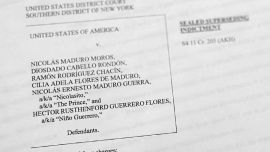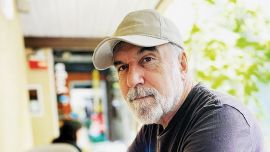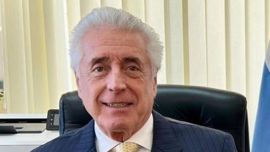The Mothers of Plaza de Mayo on Saturday commemorated the 45th anniversary of the human rights group's first march in front of the Casa Rosada, highlighting once again their indefatigable search for those disappeared by Argentina's brutal 1976-1983 military dictatorship.
Fellow human rights organisations and political leaders celebrated the landmark with a host of tributes to the mothers, who initially took to the streets to demand the re-appearance of thousands of people who had been snatched up by the dictatorship. The symbol of their struggle, the famous white headscarves, are today a worldwide symbol of the struggle against state terrorism.
"Despite our canes and wheelchairs, we 'crazy women' [as the military used to call them] are still standing," said 91-year-old human rights leader Taty Almeida at an event at the ex-ESMA, the former Navy Mechanics School used as a clandestine torture and elimination centre for political prisoners, which today has been converted into a Museum of Memory.
The tireless efforts of the mothers, seeking the "trial and punishment" of those responsible for illegal repression, eventually led to convictions for crimes against humanity for more than 1,000 ex-Army and police officers and members of the security forces.
"Forty-five years ago a group of women gathered in the Plaza with the hope of knowing where their children and grandchildren were and had the courage to confront the most atrocious dictatorship," wrote President Alberto Fernández on social media, as he expressed his "most sincere recognition and eternal gratitude" to the Mothers.
For her part, Vice-President Cristina Fernández de Kirchner extended another message of recognition, in which she said that "today is the 45th anniversary of the first round of the Mothers of Plaza de Mayo. Women who faced, in the most absolute solitude, the terror of the dictatorship. An example of unparalleled courage and bravery."
The first weekly march, held on April 30, 1977, took place as the mothers were forbidden to hold meetings in public spaces. Thus, when they walked and marched, the military could not object to their means.
Saturday's commemorations also paid tribute to Miguel Ángel Estrella, the world-renowned Argentine pianist and ex-UNESCO ambassador who died on April 7 in France at the age of 81. A victim of Latin American dictatorships, he was a vocal supporter of the human rights group.
– TIMES/AFP/NA





















Comments